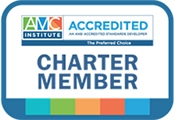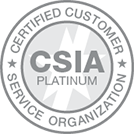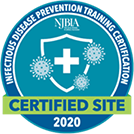Congratulations! Your hard work at generating non-dues revenue is finally paying off. You’re selling more ads and merchandise and distributing to more mailing lists. Your certification, travel, and insurance programs are setting new participation records. Corporate sponsorships are up and you’ve even found a tenant to whom you can sublease empty office space.
So imagine your surprise when the IRS says your “tax-exempt” association must hand over a chunk of that non-dues revenue for income taxes!
It’s called unrelated business income tax (UBIT). For most organizations, unrelated business income is income from a trade or business regularly carried on that is not substantially related to the charitable, educational, or other purpose, which is the basis of the organization's exemption. An exempt organization that has $1,000 or more of gross income from an unrelated business must file Form 990-T and pay income tax at the corporate rate.
The IRS does not publish a list of what is and what isn’t, UBI. The line between activities that further your association’s exempt purposes, and those that simply generate income used to carry out exempt purposes, is often blurred.
I’m no tax attorney, however, here are some basic concepts to get you thinking.
Don’t panic…
UBI is still income, and income is a good thing. Theoretically, if a major portion of your nonprofit’s income comes from unrelated businesses (25% or more), you jeopardize your tax-exempt status. But, if a program is that successful, you can establish a for-profit subsidiary to carry it out.
Many common sources of non-profit income are generally not considered an unrelated trade or business. Such sources include:
- Dues
- Registration fees
- Sponsorships
- Royalties for the use of your name or logo or other intangibles
- Sales of donated merchandise
- Work performed by unpaid volunteers
- Exhibits at trade shows and conferences held to advance your exempt purpose.
In addition, income from activities that are not regularly carried on — like a banquet, golf tournament, charity walk or ads in an annual publication — are usually not taxable, either.
However, there are some common income sources that usually are considered UBI. These include net advertising revenue and insurance program revenues other than royalties. In addition, providing sponsors with valuable benefits like free exhibit booths, web banners, publication ads, and the like may be interpreted as selling advertising by the IRS.
Certification programs can be tricky, too. Certification programs that enhance and demonstrate the holder’s competence are likely to be seen as providing a public benefit substantially related to your association’s tax-exempt purpose. But revenue from a certification program designed mainly to improve a member’s marketability, or the image of the profession, may be considered UBI.
Let an expert do the heavy lifting
Talk to your accountant about all your potential sources of unrelated business income and ways to minimize the tax impact. For example, at one association I managed we were able to nearly eliminate UBIT on advertising revenue by doing a better job of documenting the staff time and expenses involved in publishing our newsletter and selling the ads.
In general, you want to structure business agreements in a way that clearly connects the program to the purpose of your association. For example, a travel program that offers your members discounted vacations is probably UBI, but a travel program that offers educational tours directly related to your association’s purpose probably isn’t. Contracts should distinguish between what is being paid for your endorsement (royalty) and what is being paid for your services. Instead of buying logo items and reselling them to your members, you might want to find a vendor who will sell merchandise branded with your logo directly to your members and pay you a royalty on each sale.
While there is no substitute for a good accountant with nonprofit experience, more information can also be obtained by reading IRS publication 598, “Tax on Unrelated Business Income of Exempt Organizations.”




